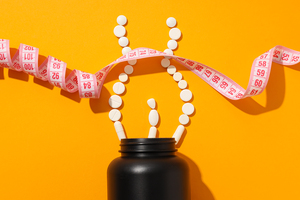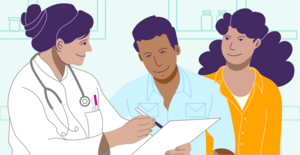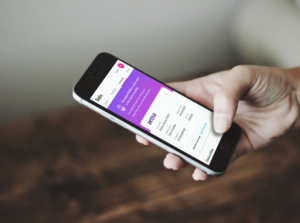Book an STD Test in Portland, OR
Own a clinic? Add your location.
Help patients book appointments with you on Solv. It's free!
20 instant-book locations
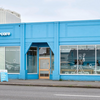
ZoomCare, NE Broadway and 6th
ZoomCare
Today
View more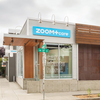
ZoomCare, Alberta
ZoomCare
Today
View more
Legacy Health- GoHealth Urgent Care, Raleigh Hills
Legacy Health- GoHealth Urgent Care
Today
View more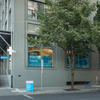
ZoomCare, Pearl District
ZoomCare
Today
View more
ZoomCare, NE MLK and Davis St.
ZoomCare
Today
View more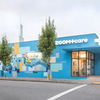
ZoomCare Super, Lloyd District Super
ZoomCare Super
Today
View more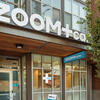
Today
View more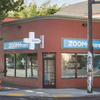
ZoomCare, East Burnside
ZoomCare
Today
View more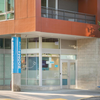
ZoomCare, Mississippi
ZoomCare
Today
View more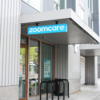
ZoomCare, Hawthorne
ZoomCare
Today
View more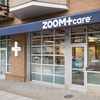
ZoomCare, Beaumont Village
ZoomCare
Today
View more
ZoomCare, Sellwood-Moreland
ZoomCare
Today
View more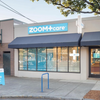
ZoomCare, Woodstock
ZoomCare
Today
View more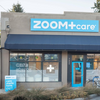
ZoomCare, Multnomah Village
ZoomCare
Today
View more
ZoomCare, St. John's
ZoomCare
Today
View more
ZoomCare, Bridgeport Village
ZoomCare
Today
View more
Smart Labs Now, Beaverton
Smart Labs Now
Today
View more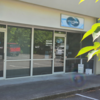
Smart Labs Now , Portland
Smart Labs Now
Today
View more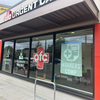
AFC Urgent Care, NE Portland
AFC Urgent Care
Today
View more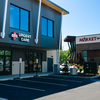
AFC Urgent Care, Cedar Hills
AFC Urgent Care
Today
View moreOwn a clinic? Add your location.
Help patients book appointments with you on Solv. It's free!
Overview of STD Testing in Portland
Who should get tested for STDs?
Anyone who is sexually active should consider getting tested for STDs, especially if they have multiple partners or are not using protection consistently. This includes both men and women, regardless of sexual orientation. It's important to remember that many STDs do not show symptoms, so regular testing is crucial even if you feel perfectly healthy. According to the CDC, certain groups are at a higher risk and should get tested regularly. These include sexually active women under 25, men who have sex with men, and anyone with HIV.
Importance of getting tested
Getting tested for STDs is a vital part of maintaining your overall health. If left untreated, STDs can lead to serious health complications such as infertility, cancer, and increased risk of contracting HIV. Moreover, many people with STDs do not show symptoms, so the only way to know for sure is to get tested. Regular testing also helps prevent the spread of STDs to others.
STD testing options in Portland, OR
Urgent care and walk-in clinics
Urgent care and walk-in clinics are a great option for STD testing in Portland. These facilities often offer same-day appointments, which can be booked through Solv’s website and mobile app. One highly rated option is Legacy Health-GoHealth Urgent Care, with locations at 3505 N Williams Ave and 4800 SW 76th Ave in Portland.
Primary care providers
Primary care providers are another reliable option for STD testing. If you have a regular doctor, they can provide you with a test during a routine check-up. This can be a comfortable option for many, as it allows you to discuss any concerns with a healthcare provider you trust.
Free STD testing and community health centers
For those without insurance or who are unable to afford testing, free STD testing is available at various community health centers in Portland. These centers provide confidential testing and treatment, regardless of your ability to pay.
At-home testing
At-home testing kits are becoming increasingly popular. These kits allow you to collect a sample at home and send it to a lab for testing. Results are typically available online within a few days.
Prevalence of STDs in Portland
Portland, located in Multnomah County, has seen a rise in STD cases in recent years, mirroring a national trend. According to the CDC, the most common STDs in Portland include chlamydia, gonorrhea, and syphilis. The rates of these STDs are higher in Portland than in nearby counties such as Lincoln, Sherman, Pierce, Wasco, and Marion.
Risk factors related to STDs in Portland
Several factors contribute to the high prevalence of STDs in Portland. These include a lack of regular testing, unprotected sex, having multiple sexual partners, and certain demographic factors such as age and gender. It's important to note that anyone who is sexually active can get an STD, and regular testing is the best way to detect and treat these infections early.
Solv has strict sourcing guidelines and relies on peer-reviewed studies, academic research institutions, and medical associations. We avoid using tertiary references.
STD Testing FAQs
Where should I get an STD test in Portland?
In a doctor's office, a health clinic, or an urgent care center, you can get an STD test. If you're experiencing symptoms, it's best to visit a doctor's office, where they can also treat you or issue you a prescription. While some Portland clinics and urgent care centers allow walk-in appointments, it's advisable to make an appointment ahead of time to prevent excessive waits.
How long does it take to get STD test results?
Various testing are required for various STDs. Depending on the type of STD test you took, you may receive your results in two to ten days. Some outcomes may be immediately available. Your doctor may be able to diagnose an STD through a physical examination. In some cases, your doctor's office may only contact you if your test results are positive.
How much does an STD test cost in Portland?
The cost of STD testing is governed by several factors, including where you are tested, the type of test you need, and if you have health insurance. Some Portland clinics may offer free testing or testing on a sliding scale based on your income. Because of the cost, don't put off obtaining an STD test. With your doctor's office, discuss the cost and payment choices. Delaying STD treatment may have catastrophic implications.
Does insurance cover STD testing in Portland?
The cost of STD testing is governed by a number of factors, including the location of the test, the type of test required, and whether or not you have health insurance. Some clinics may provide free or sliding-scale testing, depending on your income. Don't let the expense of an STD test deter you from getting one. With your doctor's office, discuss the price and payment choices. Delaying STD treatment could have catastrophic ramifications.
How do they test for STDs in Portland?
There are around 20 different forms of STDs, each with its own set of diagnostic tests. No single test exists that can detect all types of STDs. Your doctor can help you figure out which tests you'll need. In STD testing, a blood sample or a urine sample may be used. Your doctor may also take a swab from the inside of your cheek, your vaginal area, or another potentially infected place.
What STDs can be detected by a blood test?
Blood tests are used to diagnose hepatitis B, hepatitis C, herpes, HIV, and syphilis. In a laboratory, a technician examines a blood sample for antibodies that the body has produced in reaction to disease. The virus's DNA can also be detected by several blood tests. Remember that if you've recently been exposed to an STD and your body hasn't yet produced antibodies, you could test negative even if you have the disease.
Can I get a same-day appointment for STD testing in Portland?
Many Portland, OR urgent care providers offer same-day and next-day appointments, which you may book through Solv. To make healthcare more accessible to everyone, we collaborate with thousands of top-rated local providers. Our physician partners understand that waiting days, if not weeks, for an appointment isn't always the best option, and they share our commitment to simple, accessible health care.
How can I book an STD test on Solv?
To find a healthcare practitioner in your area, simply enter your location and search for "STD test" on our website. A list of providers and available appointments can be found on the following page. Choose the most convenient time and location for you. Make it clear that you've come for STD testing.
How long does an STD test take in Portland?
If you have a specific STD, inform your doctor so that the necessary test can be scheduled. Otherwise, they'll help you figure out which tests you'll need. The nurse or doctor simply needs a few minutes to get a blood sample, a urine sample, or a swab from the probable infection site.
Can I test myself for STDs at home?
Although there are several STD home tests available, not all of them are accurate. The accuracy of any STD test is determined by the quality of the sample taken. For home STD kits, a blood sample, a urine sample, or both are frequently required. Because doctors and nurses have more experience collecting samples, traditional in-office STD testing is the most accurate.
Related Searches
Drug Test in Portland, OR
A1C Test in Portland, OR
DOT Exam in Portland, OR
Ear Wax Removal in Portland, OR
Pregnancy Test in Portland, OR
Sports Physicals in Portland, OR
DNA Test in Portland, OR
Blood Test in Portland, OR
Lab Tests in Portland, OR
Diabetes Test in Portland, OR
Flu Test in Portland, OR
Basic Metabolic Panel in Portland, OR
Diagnostic Test in Portland, OR
Cholesterol Test in Portland, OR
Glucose Test in Portland, OR
CMP Test in Portland, OR
Allergy Testing in Portland, OR
Strep Test in Portland, OR
TB Test in Portland, OR
Urinalysis in Portland, OR
Vitamin D Test in Portland, OR
H Pylori Test in Portland, OR
Mono Test in Portland, OR
Pulmonary Function Test in Portland, OR
RSV Test in Portland, OR
Thyroid Test in Portland, OR
Urgent Care in Portland, OR
Pediatric Urgent Care in Portland, OR
COVID-19 Pill in Portland, OR
COVID-19 Testing in Portland, OR
Retail Clinic in Portland, OR
Hepatitis test in Portland, OR
Aetna Urgent Care
Blue Cross Blue Shield Urgent Care
Cigna Urgent Care
COVID-19
Flu
United Health Urgent Care
» All services in Portland, ORFind STD testing
Nearby cities
Popular Brands in Portland
Everyday Healthcare, Simplified
Expert advice to help you live your best life

